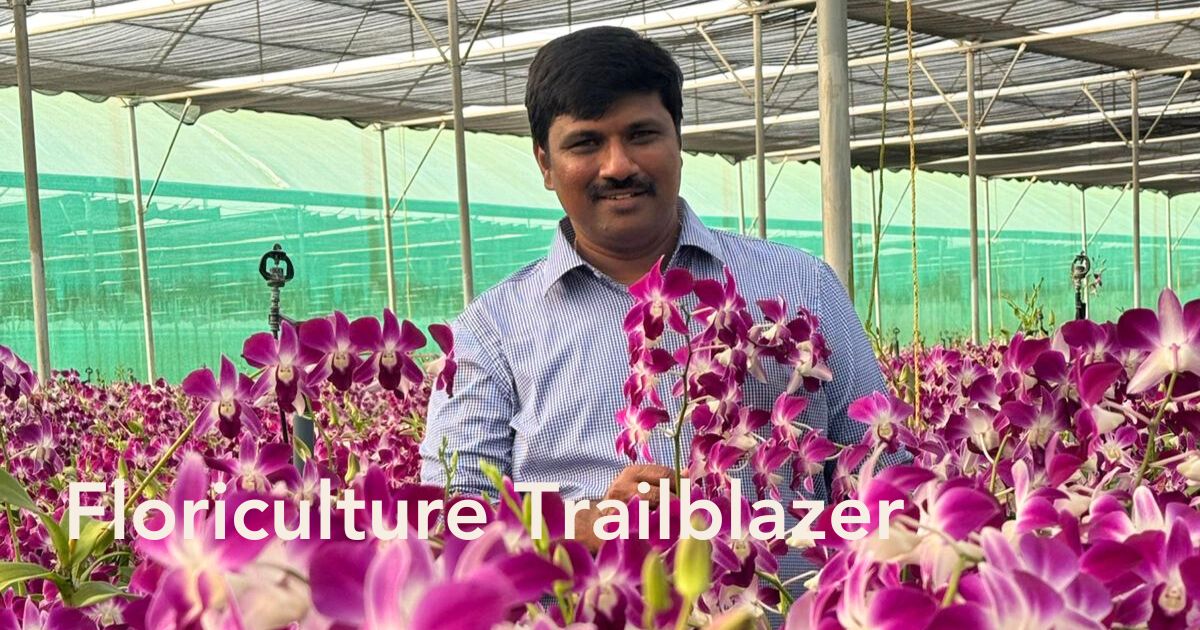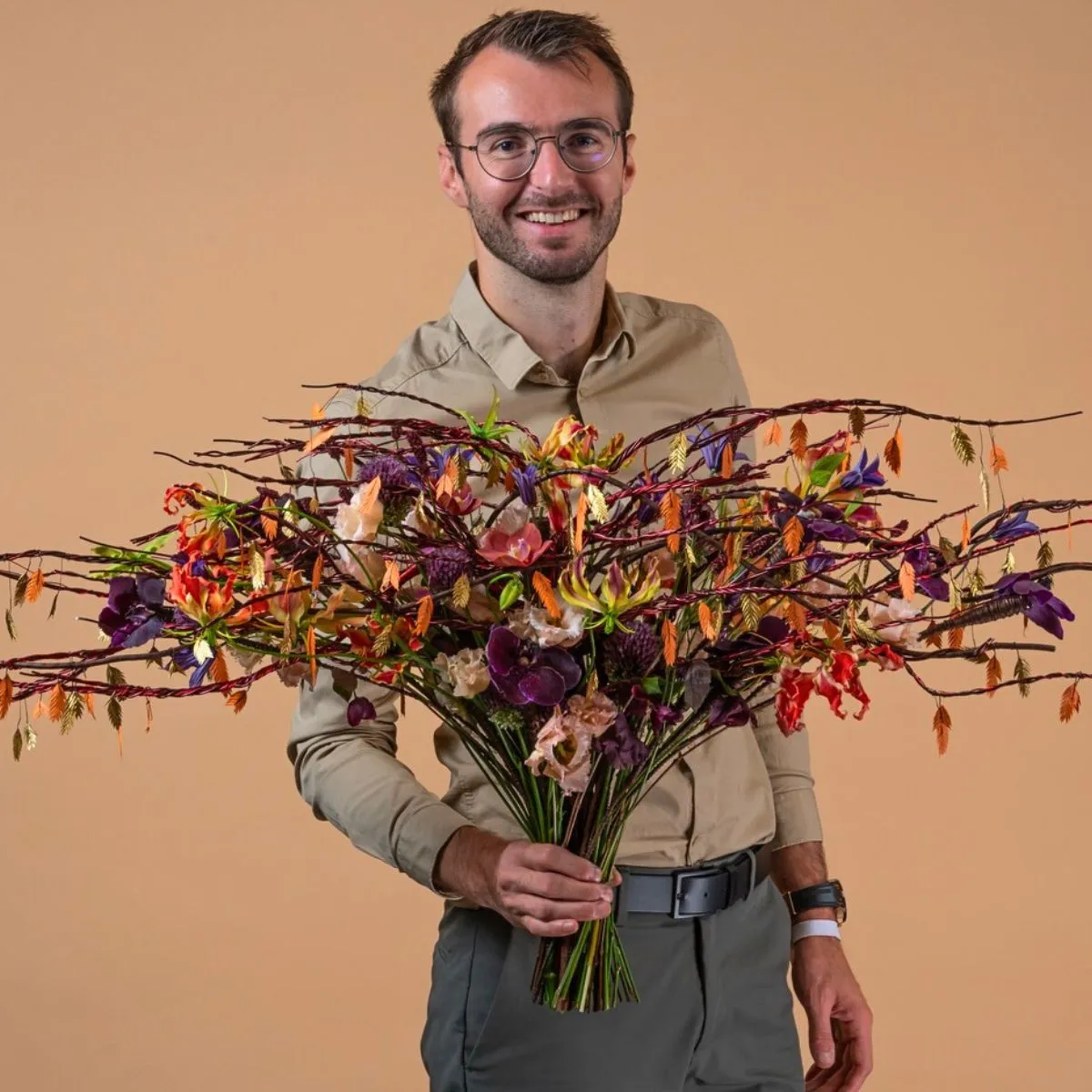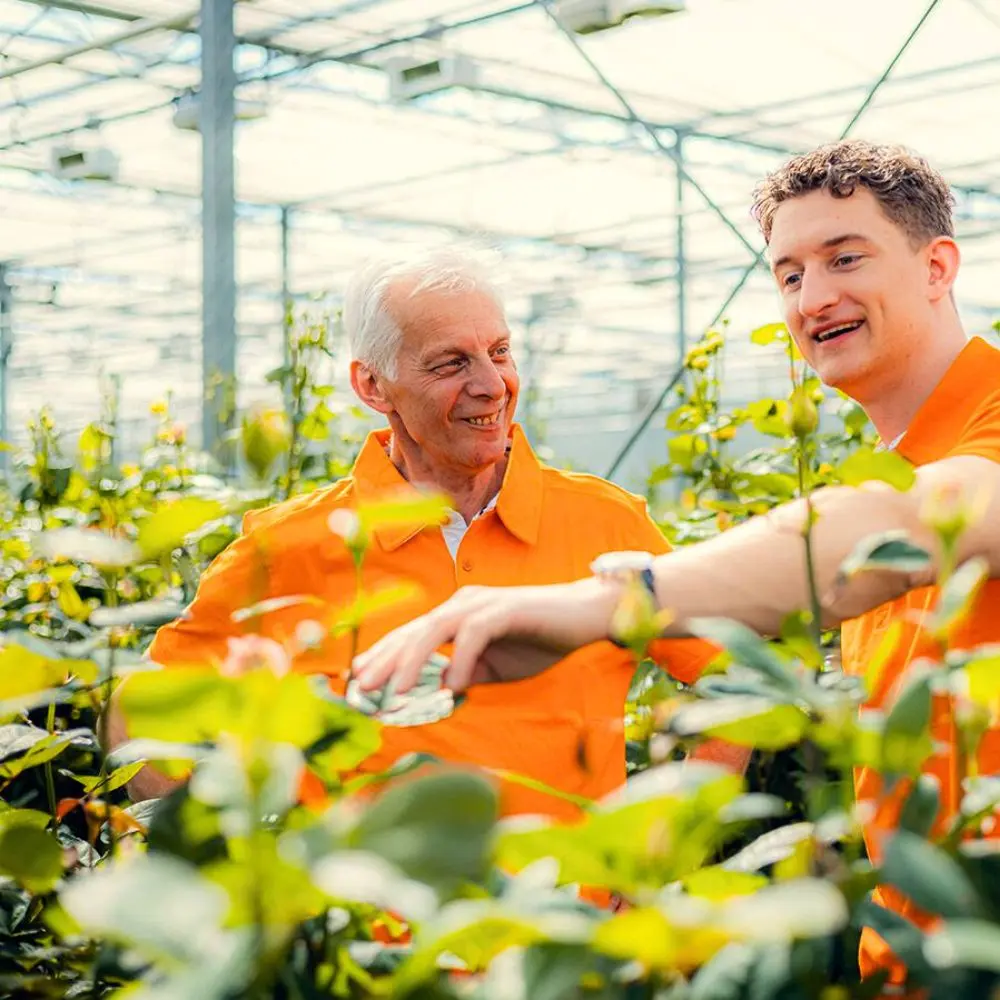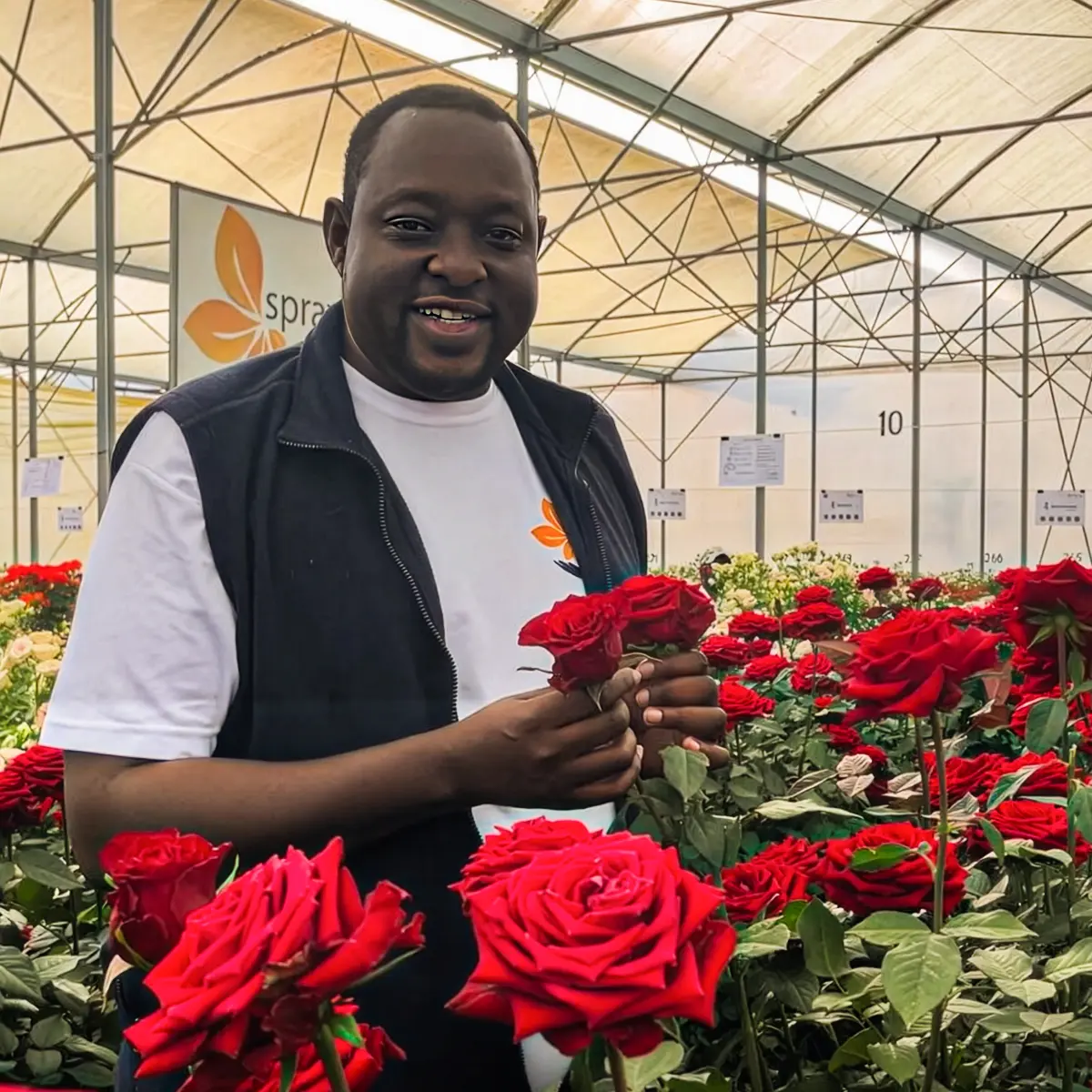In the heart of India's floriculture landscape stands a name that's become synonymous with innovation, resilience, and purpose: Bollapally Srikanth. From earning just $15 a month as a farm supervisor to managing over 70 acres of high-tech greenhouses and shaping policy at the national level, Srikanth’s story is one of extraordinary grit and unwavering passion.
As the Managing Director of Vensai Flowers and President of the Growers Flower Council of India, he has helped bridge Indian growers with leading global breeders, brought premium varieties to market, and championed sustainable agriculture and rural empowerment. In this edition of 10 Questions, Srikanth opens up about his remarkable journey, the challenges he’s overcome, and why he believes floriculture holds a powerful future — not just for India, but for the world.
Question 1
For those who don’t know you, who are you, and what do you do?
"My name is Bollapally Srikanth. I hail from a small village in South India — once a young boy with big dreams. After discontinuing my formal education, I moved to the city in search of work and began my journey as a farm supervisor, earning just $15 a month. Today, I stand proud as a grower managing over 70 acres of greenhouses and net houses, cultivating around 18 varieties of flowers, vegetables, and nursery plants.
On the personal front, I’m fortunate to have a supportive family. My wife, Raga Saravanthi, is not only my life partner but also leads the marketing operations of our trading company, Om Sri Sai Flowers. We are proud parents of our daughter, Mokshashree, and son Harsha Vardhan, both currently pursuing their education in the United States.
Driven by a deep passion for floriculture, I currently serve as the Managing Director of Vensai Flowers and the President of the Growers Flower Council of India — an umbrella organization representing the entire floriculture ecosystem, including growers, input suppliers, and key stakeholders. Our work extends to exclusive breeding partnerships with leading international breeders such as HilverdaFlorist, Danziger, Dümmen Orange, and Ball SB, bringing new and premium flower varieties to the Indian market. I also serve as a Director at IFAB (International Flower Auction Bangalore), playing a key role in advancing India’s floriculture industry.
In addition to these roles, I have actively supported government bodies in policy representation, market development initiatives, and the promotion of sustainable growth within the agricultural sector."
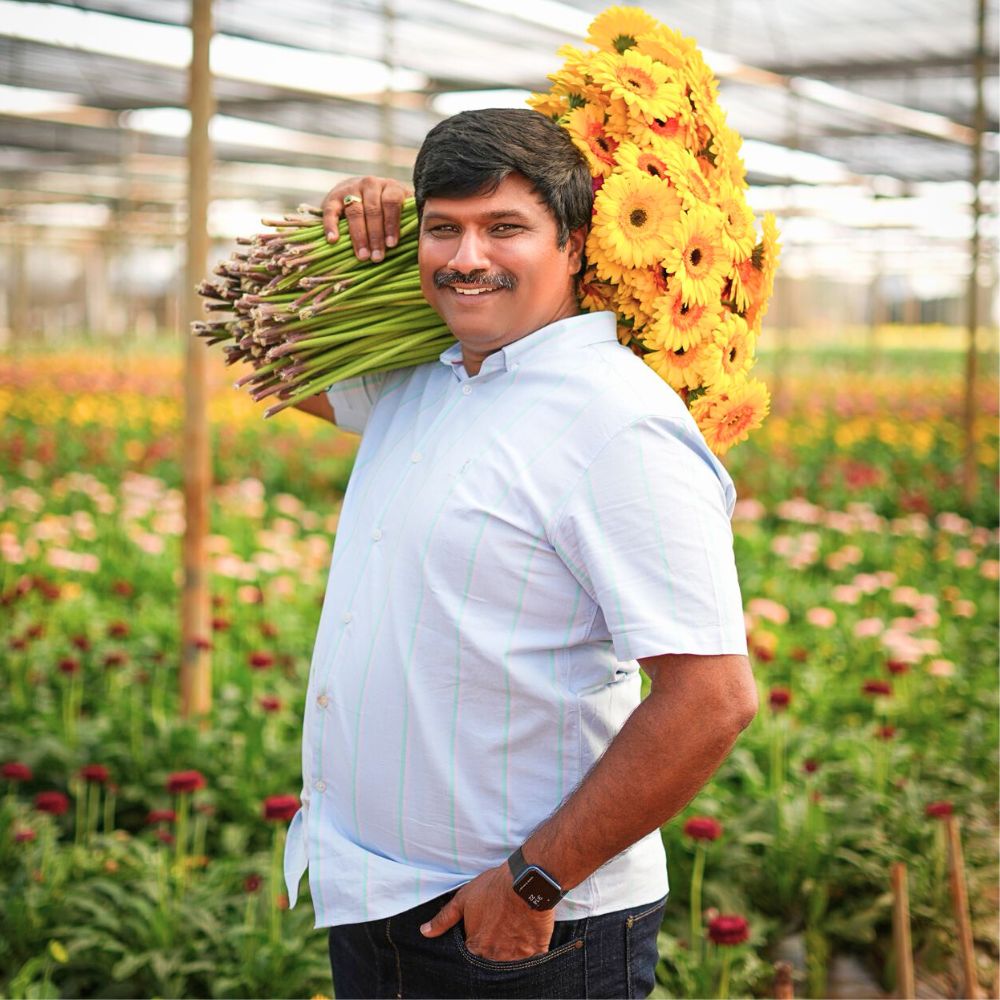
Question 2
What is so special about your job?
"The joy of growing flowers is truly indescribable. We consider ourselves privileged to be part of an industry that not only connects us to the Indian market but also opens doors to exceptional global exposure. Across the world, extraordinary flower varieties are constantly being developed — and through our collaborations with partners from the USA, Holland, and several other countries, we are proud to bring these innovations to consumers across India.
What truly enriches our journey is the social impact we create. We take great pride in supporting rural livelihoods, especially by empowering women, with nearly 60% of our workforce being women from local communities. For us, it's not just about cultivating flowers; it’s about nurturing the roots of sustainable agriculture and rural prosperity.
In an era where urbanization continues to shrink agricultural land, we remain deeply committed to protecting and advancing farming. Our operations are built on a strong foundation of modern agricultural technologies, including high-performance greenhouse films, precision irrigation, and fully automated climate and fertigation systems — all aimed at increasing efficiency and long-term sustainability.
We also follow a circular and eco-conscious approach. Our practices include Jeevamrut preparation using cow dung, urine, jaggery, and pulses; vermicomposting; solar-powered irrigation; one of the largest rainwater harvesting systems; waste management; and Integrated Pest Management (IPM).
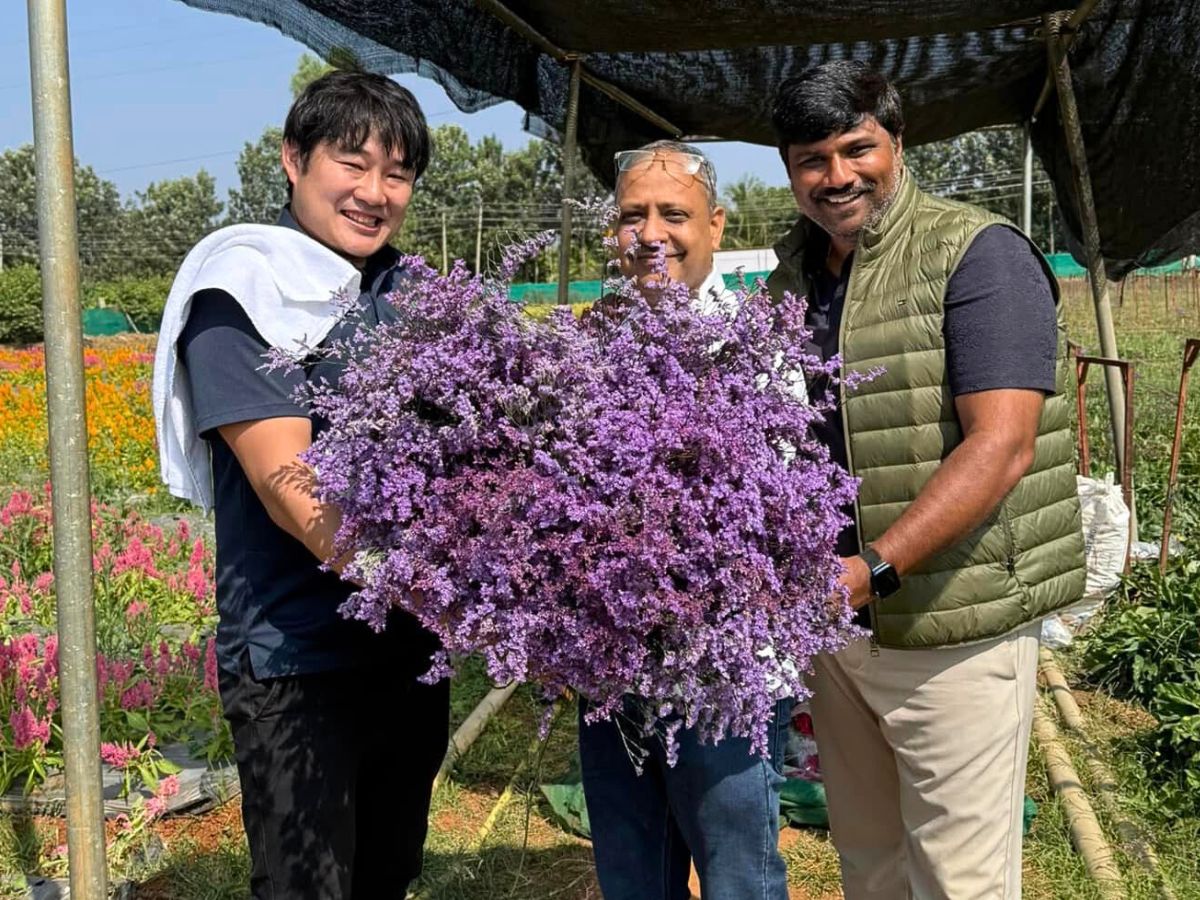
At our core, we remain humble, as we believe floriculture is one of the noblest professions. We are committed to sharing our knowledge and experiences to uplift others through structured initiatives such as:
→ Training and Internships for Students: hands-on cultivation training, nursery & propagation, pest and disease management, post-harvest handling, and career mentorship.
→ Support for Growers: technical training, access to quality planting materials, infrastructure support, market linkage, and promotion of sustainable practices."
Question 3
Are there any specific challenges or obstacles you’ve faced at work, and how did you overcome them?
"When I look back, life feels nothing short of a miracle. I was once a boy with nothing more than $120 in hand, no background in agriculture, and no knowledge of how to run a business. The journey began with uncertainty — many days were spent staring into a blank future. But over time, through learning, unlearning, and embracing every mistake as a stepping stone, I took my first steps by starting a farm with zero experience in cultivation.
Today, that journey has grown into an international presence — and what brings me the greatest joy is knowing that we now help support numerous families in their livelihoods. To be in a position where I can guide, educate, and empower others, especially those starting just like I did, is something I take immense pride in.
When we seek to learn about new crops, varieties, or techniques and reach out to our international partners, we’re welcomed with open arms — something I could never have imagined in those early days. There was a time when India, particularly Karnataka, was barely on the global horticulture map. But through collective effort and perseverance, that has changed.
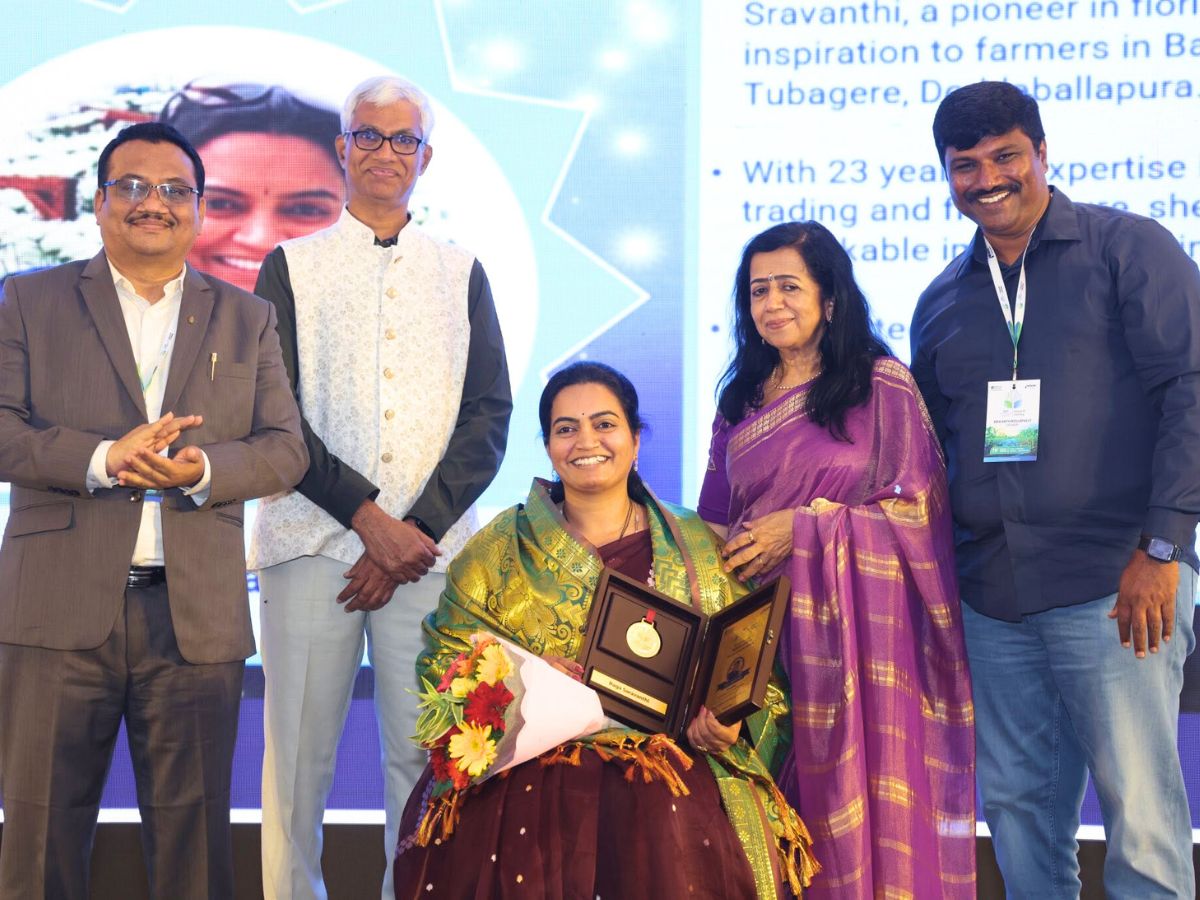
Yet, even with all this progress, a new challenge has emerged — the promotion and preservation of fresh flowers. The rise of plastic/artificial flowers poses a serious threat to the natural beauty and livelihoods associated with real floriculture. What was once one of the few untouched symbols of authenticity — fresh flowers — is now being compromised.
To address this, we established GFCI (Growers Flower Council of India), an organization dedicated to protecting and promoting the fresh flower industry. This is an uphill battle, but one we are committed to fighting — not just for ourselves, but for our community, our industry, and the future of floriculture in India.
At the end of the day, what we cherish most is the smile on a consumer’s face when they receive a bouquet of fresh flowers. Our mission is simple: to keep that freshness alive — in every bloom, and in every heart it touches."
Question 4
What are the threats in the industry, and if so, do you have any solutions for them?
"Our industry faces several pressing challenges. From unpredictable climatic conditions to the lack of technical knowledge about optimal greenhouse structures that ensure long-term viability, the journey is far from easy. Add to this the rising cost of inputs, and it becomes increasingly difficult for growers to sustain and scale.
However, one of the most alarming issues we face today is the shortage of skilled labor. With cities expanding and more industries setting up on the outskirts, laborers are now choosing air-conditioned jobs over working under the sun in agricultural fields. This shift is creating a serious vacuum in manpower, particularly for flower cultivation, which is labor-intensive and requires skilled handling.
Compounding this problem is the growing popularity of plastic/artificial flowers, which is putting the brake on industry expansion. This artificial alternative is not only impacting demand but is also forcing small and marginal farmers to either diversify into other crops or, worse, step away from agriculture altogether.
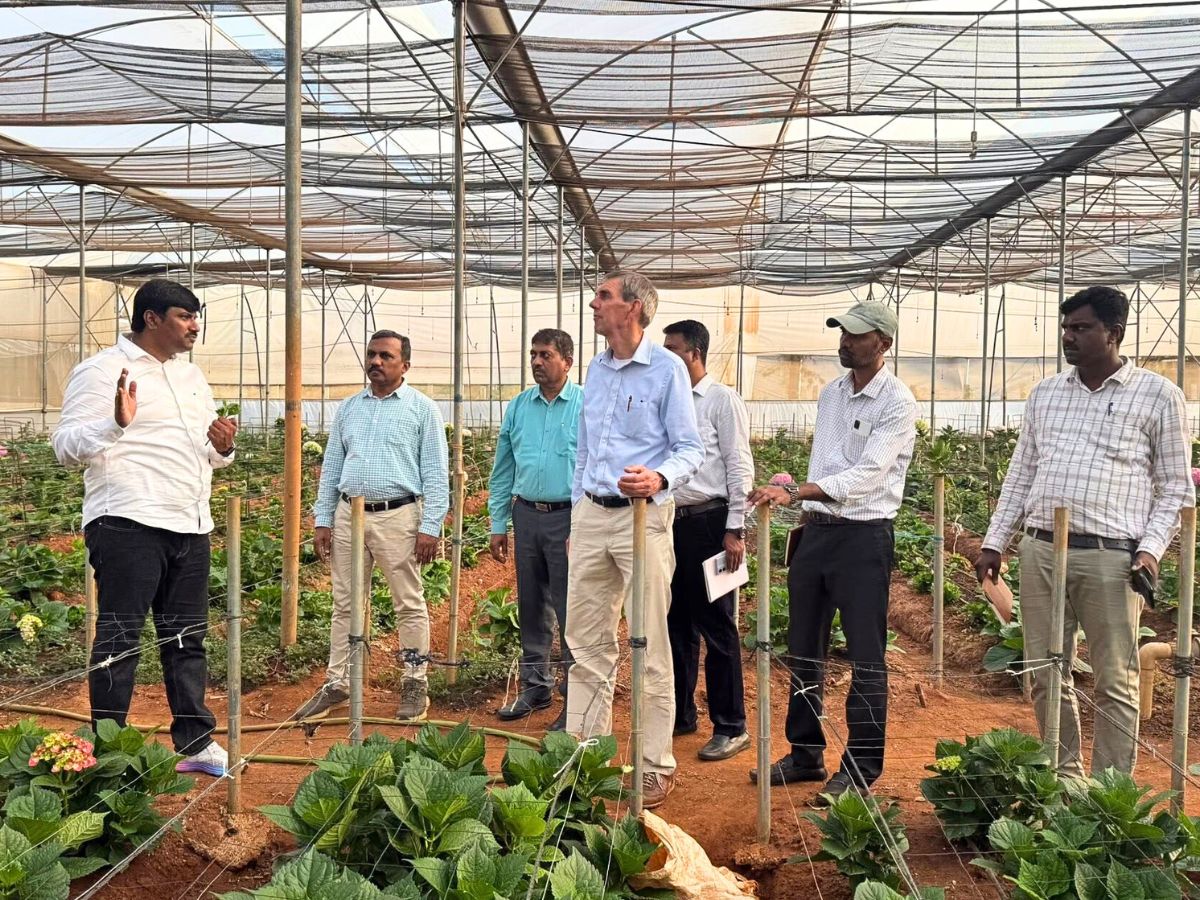
To address these growing challenges in our industry, we believe in proactive and sustainable solutions:
- Educating growers on climate-appropriate, cost-effective infrastructure like polyhouses, shade nets, and low-energy greenhouses to ensure crop protection and higher productivity.
- Introducing technology to reduce labor dependence: drones for spraying and monitoring, automated irrigation/fertigation, and sensor-based climate control.
- Consumer awareness campaigns to promote the emotional and environmental value of fresh flowers over plastic alternatives.
These steps will not only safeguard the interests of current growers but also inspire the next generation to take pride in floriculture."
Question 5
How has technology, such as e-commerce platforms or digital marketing, affected your industry? What strategies have you employed to stay competitive?
"Unlike many other industries, e-commerce has had a remarkably positive impact on floriculture, enabling us to connect directly with end consumers like never before. Platforms such as Ferns N Petals, IGP, and others have played a vital role in keeping the interest in fresh flowers alive and accessible across the country.
To maintain this momentum and continue engaging with modern consumers, many of us growers have embraced social media platforms like Instagram, Facebook, and others. Through these channels, we share the beauty of our blooms, spread joy, and build a deeper connection with our audience — one flower at a time."
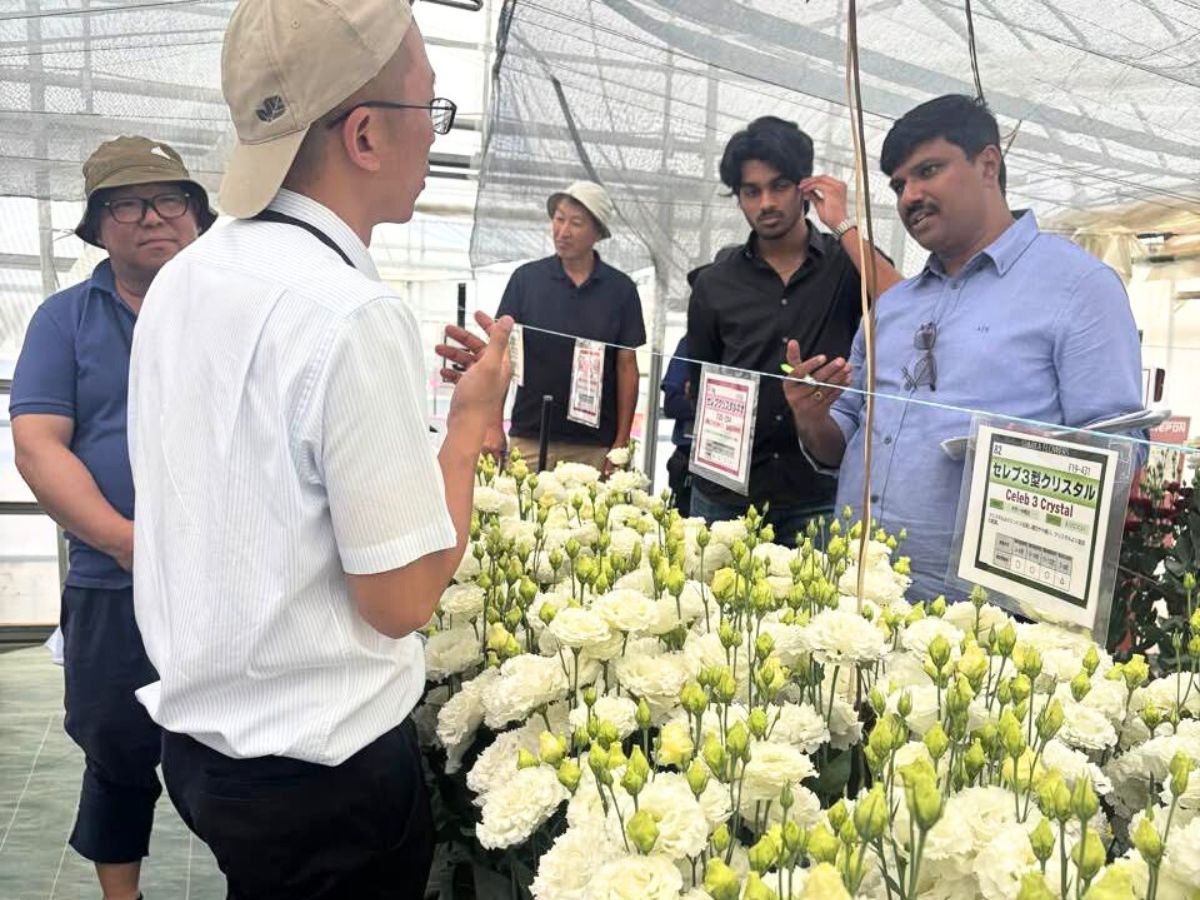
Question 6
Who (in or outside the floral industry) is an inspiring example to you? And Why?
"Unfortunately, I don’t have anyone as an inspiration. Looking back on my situation at the age of 17 due to the struggles faced by my parents in farming, I was intrigued by floriculture and wanted to explore more options, which has led me to be the person I am today.
In a world where I found no one to look up to, I chose to look within. My hard work, dedication, and drive to achieve something meaningful make me my inspiration."
Question 7
How do you handle stress or difficult moments in your life?
"The best way to handle stress is to face it head-on. Every challenge, no matter how tough, carries within it the seed of opportunity. I’ve learned that problems often come with hidden lessons — and if we approach them with the right mindset, they become stepping stones rather than roadblocks.
As I write this, we’re dealing with an unexpected mishap at our farm. But life doesn’t stop — we keep moving forward. In moments like these, I find strength in unwinding with family, spending time with friends, and most importantly, staying clear about my goals.
When your vision is strong and your purpose is clear, even the biggest challenges feel manageable. Stress becomes part of the journey — not something that stops you, but something that shapes you."
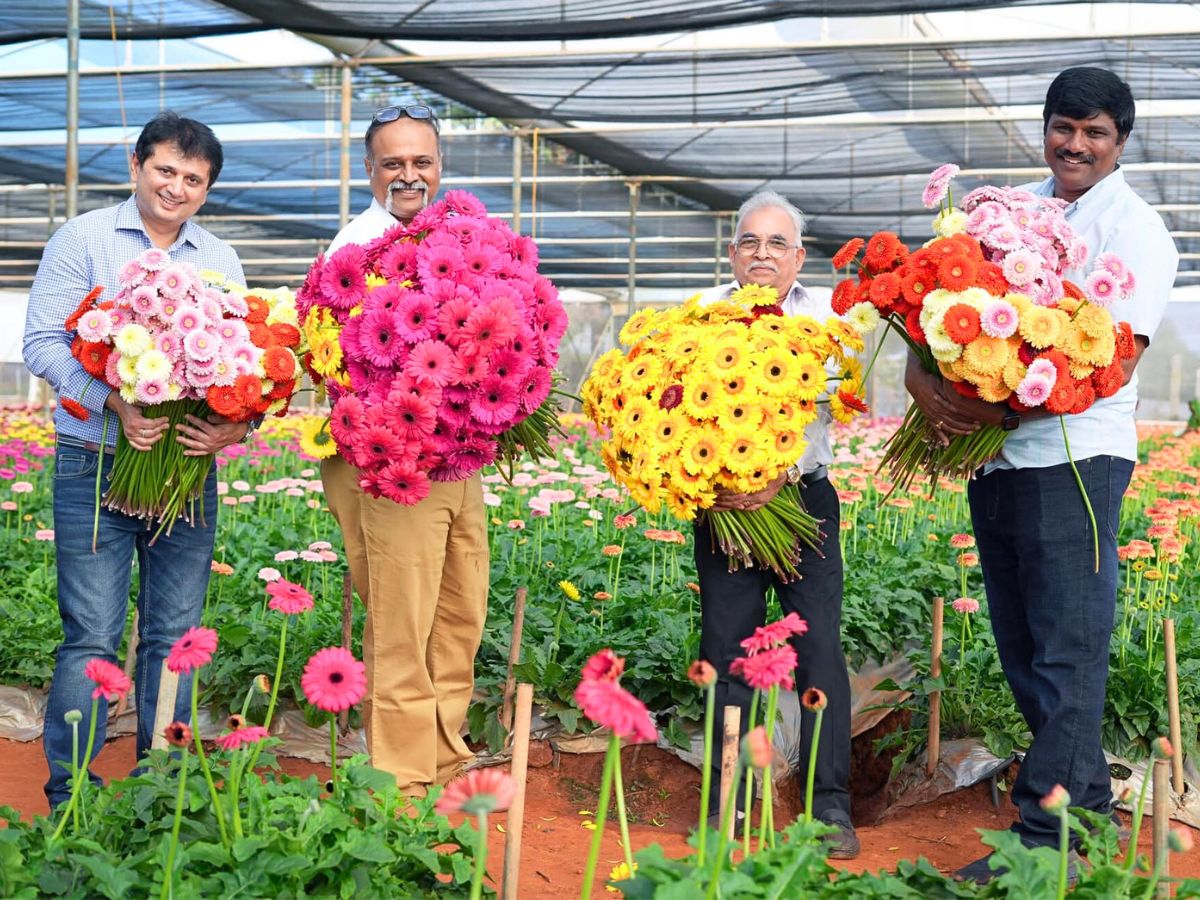
Question 8
What has been the best (floral or non-floral) news for you lately, or of the last year?
"The most meaningful and unforgettable news this past year was when KF Bioplants and HilverdaFlorist B.V. registered a new Gerbera at Floricode — and named the variety after my daughter, Moksha Sree.
As a parent, seeing her name attached to something so beautiful, vibrant, and enduring was deeply emotional and incredibly special. It symbolizes love, hard work, and the colorful spirit she brings into our lives — now reflected in nature’s vibrant language."
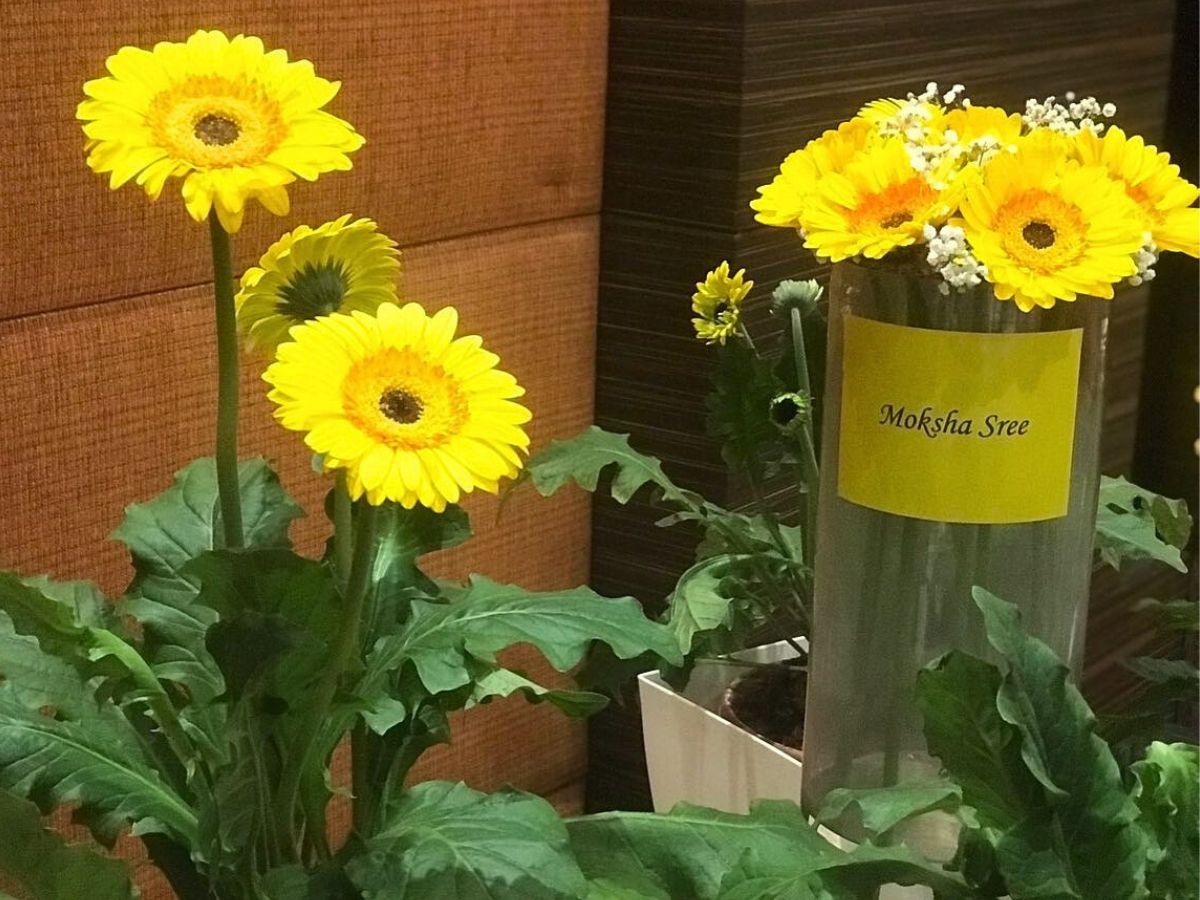
Question 9
Which is your favorite flower/plant, and why is it good for you?
"Honestly, it’s hard to pick just one – I genuinely love all kinds of flowers. Each one has its charm. Roses bring elegance, and lilies have peaceful grace. Being in the floriculture industry in Bangalore, I’ve had the chance to produce so many varieties. Each one teaches me something about beauty, patience, and how nature always finds a way to impress us.
I feel that through flowers, we can share the feelings and emotions that words often fail to express."
Question 10
What are you doing this weekend?
"This weekend, I am planning to spend meaningful time working while being surrounded by my family. For me, work isn't just a responsibility — it’s something deeply connected to nature. Being on the farm, close to the earth, water, and flowers, gives me both happiness and joy. It's a blessing to blend what I love doing with the people I love most."

All pictures courtesy of Bollapally Srikanth.

